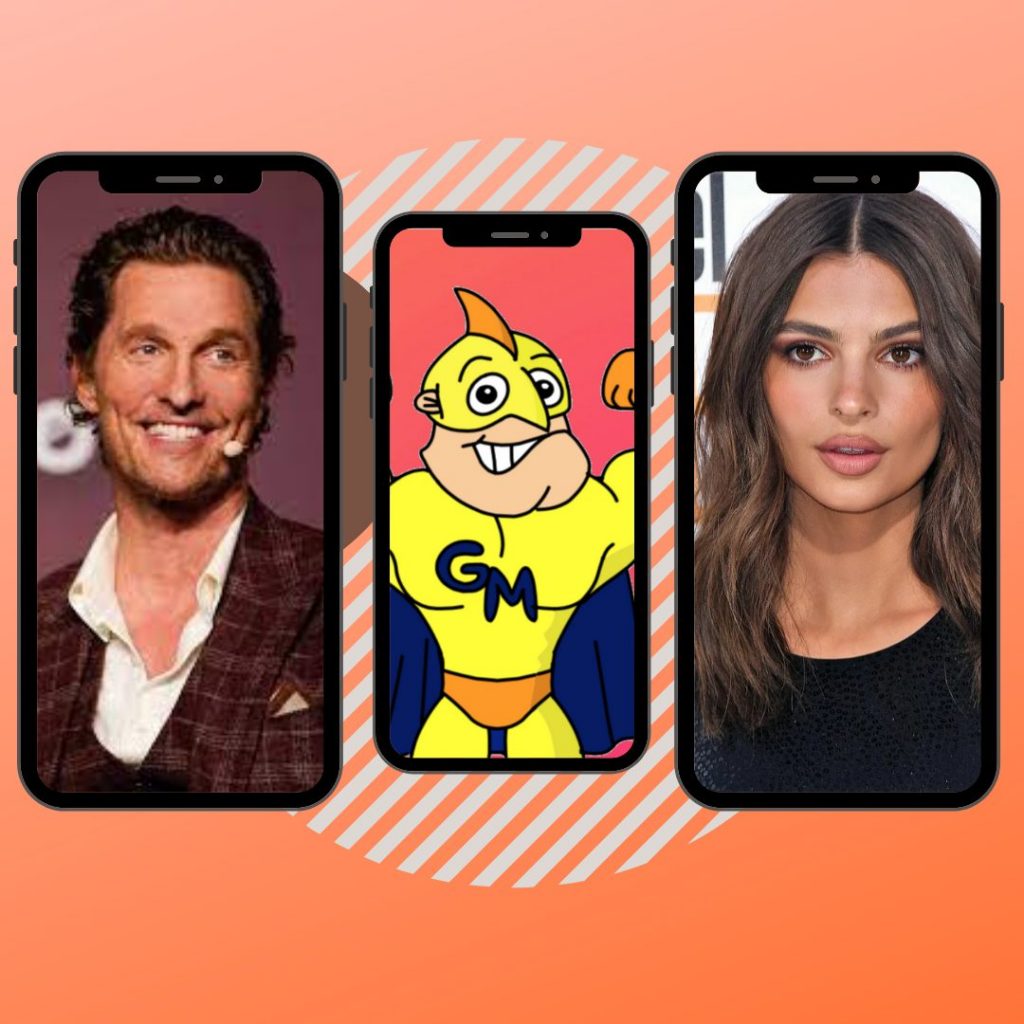
Choose your own avatar, will you choose Matthew Mcconaughey, Emily Ratajkowski or the Genki English Superhero?
I sent out an April Fool’s email this year about an AI (artificial Intelligence) app. Don’t worry, AI isn’t at the level to take your job yet.
But it will be soon. Probably in the next 5 to 7 years.
So how does it work and what can we do about it?
AI depends on “data sets” You feed it lots and lots of data and it “learns” how to do something.
If there is enough data the AI becomes better at doing that job than a human.
For example with detecting cancer you feed the computer lots and lots of X-rays along with the human doctors’ diagnosis and the computer learns to see patterns between the two.
The AI computer is now better at reading the X rays than a human doctor.
So to train an AI to become a great teacher you have to feed it data of lots of people teaching. And preferably zoomed in video data of both the student and teacher’s faces.
Both the 2020 pandemic and the rise of online English teaching in China has provided this data. (Just one famous school in China has millions of videos of 65,000 qualified native speaker teachers teaching hundreds of lessons each. That’s a lot of data.)
They don’t even have to be good teachers as the AI can learn just as much from the mistakes of “bad” teachers as it does from the great teachers.
The AI can now read the emotions of the teacher & student and of course it can measure the linguistic improvement of the students.
Eventually, the AI will have so much data analyzed and tested that they become better than any one individual human teacher.
Plus of course the AI teacher doesn’t get tired, doesn’t have bad days, doesn’t need holidays and can be replicated onto millions of phones at once. All giving individualized feedback and better results for less money than any current teacher.
Then the icing on the cake
The final step comes with the “avatar” the computer presents.
Just as your current phone has filters that can make you move and act like a dinosaur or koala, Hollywood has had for many years computers that can put a young Arnold Schwarzenegger or Samuel L Jackson into a movie.
This same tech is coming to your smartphone in the next couple of years.
So you’ll be able to choose exactly what your AI English teacher looks like, will it be Matthew Mcconaughey, Emily Ratajkowski, the Genki English Superhero or your favourite Tik Tokker?
What can you do about this?
You could be a Luddite and fight the tech. But look how that always turns out.
Or we could be an Ostrich and say “Oh, science fiction! My bank will never go online. My paper maps will never be outdated! I can get my Kodak film developed at any drug store!”
Or we can think, “How can I help?”
Having better quality teaching for more people for less money has to be an amazing thing for the world.
So how can you help it along? How can you help the AI and using the tech to help even more students in the world?
Or do you choose the ostrich option? 😉
Be genki,
Richard



I would definitely choose the Genki teacher, way cooler!
Hey
I think I’d choose Matthew McConaughey. He kinda took a leap of faith in his career when he decided not to accept roles in rom-coms any more. And though he knew other offers would be scarce for some time he stuck with his decision for almost two years before things changed. I admire that very much, because when you say yes to unimportant things you say no to important ones. Making that kind of choices takes courage and we often stick with the easiest and most convenient options. He didn’t and I’m sure he himself as well as the viewers are very glad about that.
Let we all choose the most meaningful path not the easiest one.